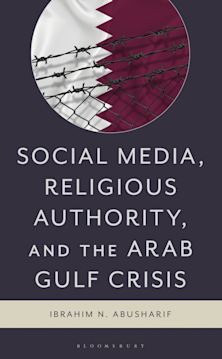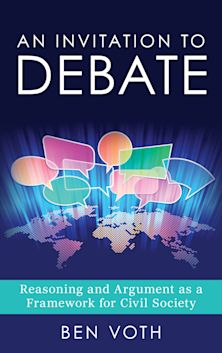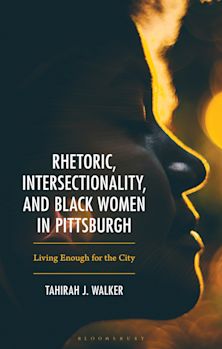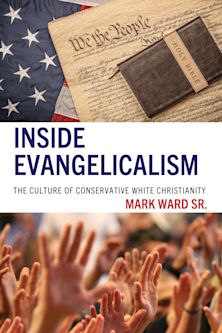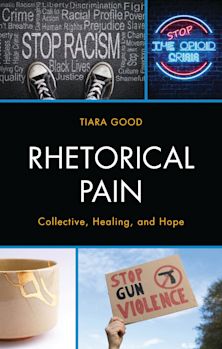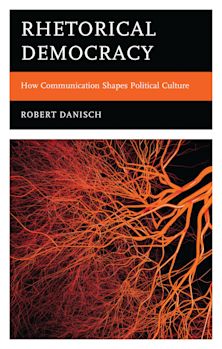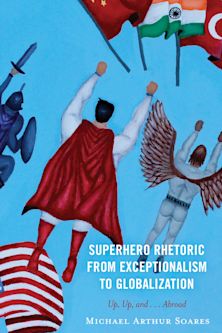- Home
- ACADEMIC
- Communication Studies
- Rhetoric
- Economic Actors, Economic Behaviors, and Presidential Leadership
Economic Actors, Economic Behaviors, and Presidential Leadership
The Constrained Effects of Rhetoric
Economic Actors, Economic Behaviors, and Presidential Leadership
The Constrained Effects of Rhetoric
This product is usually dispatched within 3 days
- Delivery and returns info
-
Free US delivery on orders $35 or over
You must sign in to add this item to your wishlist. Please sign in or create an account
Description
There is considerable disagreement about whether the U.S. president has a direct and measurable influence over the economy. The analysis presented in Economic Actors, Economic Behaviors, and Presidential Leadership: The Constrained Effects of Rhetoric suggests that while presidents have increased their rhetoric regarding the economy, they have not had much success in shaping it. Considering this research, Arthur argues that the president’s decision to address the economy so often must stem from a symbolic placation or institutional necessity that is intended to comfort constituencies or somehow garner electoral advocacy from the party’s base. No other viable explanation exists given the lack of results presidents obtain from discussing the economy and their persistent determination to do so. This discrepancy suggests that presidential rhetoric on the economy is, at best, a tool used to appear concerned to everyone and toe the party-line to their base. Arthur presents an overview of economic rhetoric from the presidential office that will be of interest to scholars of the economy and political communication.
Table of Contents
Chapter 2: Ascertaining Presidential Influence with Economic Actors
Chapter 3: Presidential Rhetoric and the Federal Reserve
Chapter 4: Presidential Rhetoric and Public Perceptions
Chapter 5: Congressional Actions as Preeminent Economic Leadership
Chapter 6: Conclusions
Product details
| Published | Aug 02 2016 |
|---|---|
| Format | Paperback |
| Edition | 1st |
| Extent | 166 |
| ISBN | 9780739199190 |
| Imprint | Lexington Books |
| Illustrations | 16 Graphs, 18 Tables |
| Dimensions | 9 x 6 inches |
| Series | Bloomsbury Studies in Political Communication |
| Publisher | Bloomsbury Publishing |
About the contributors
Reviews
-
Notwithstanding Richard Neustadt's assertion that presidential power is the power to persuade, Arthur demonstrates empirically that presidents are not very effective when they attempt to persuade key economic actors. Relying on content analysis of speeches, Arthur examines presidential rhetoric and its effect on the economy. While presidents have increasingly tried to use persuasion to build support for their policies, the author finds that rhetoric has little impact on the Federal Reserve's actions, Congress, or the public's perceptions of the economy. Indeed, the author suggests that congressional committees may have more influence over the Fed than the president. Arthur also finds, paradoxically, that presidents are often less likely to talk about the economy when times are bad (Barack Obama being a notable exception). Arthur concludes that 'presidential rhetoric on the economy is, at best, a tool presidents use to appear concerned about the economy to everyone and toeing the party-line to their base.' This work provides empirical evidence to support what many have long suspected: that presidential talks about the economy are just talk. Summing Up:Recommended. Upper-division undergraduate, graduate, and research collections.
Choice Reviews
-
[T]his book contributes meaningfully to our growing, if bifurcated, understanding of why and how presidents communicate with their public and what the consequences of these efforts may be. Scholars who have invested time in this debate would do well to read Arthur’s words carefully, and those seeking to learn more in general about presidential rhetoric and presidential economic leadership will find Economic Actors,Economic Behaviors, and Presidential Leadership to be as enjoyable of an introduction to the topic as it is an insightful one.
Rhetoric & Public Affairs
-
Using the president’s rhetoric on the national economy as an analytic wedge, this nicely written study adds to our understanding of the role presidential rhetoric plays—and fails to play—in influencing policy making and policy makers. C. Damien Arthur’s book will be of particular interest to students and scholars with an interest in economic policy, presidential rhetoric, and the ways in which they intersect.
Mary E. Stuckey, Georgia State University
-
C. Damien Arthur’s Economic Actors, Economic Behaviors, and Presidential Leadership takes a skeptical and data-driven look at a major question for scholars of the presidency: does presidential rhetoric matter, and if so, how? The book is sure to be of interest to students of presidential rhetoric.
Thomas W. Benson, Pennsylvania State University












